Secrets of softening water for a washing machine
 Hard water is one of the reasons for ineffective washing of clothes. Many housewives note that such water makes laundry hard, and some say that water hardness affects the internal parts of the machine. Therefore, the question arises, how to soften the water entering the machine, what product to use for this?
Hard water is one of the reasons for ineffective washing of clothes. Many housewives note that such water makes laundry hard, and some say that water hardness affects the internal parts of the machine. Therefore, the question arises, how to soften the water entering the machine, what product to use for this?
Why soften water?
A washing machine, like other household appliances, requires careful care and constant cleaning. Housewives who monitor the condition of their “helper”, as well as the efficiency of washing, know that clothes are washed better in soft water. In addition, you need to soften the water in all cases if you notice that the washing machine contains:
- scale;
- soap scum;
- unpleasant smell.
Magnesium and calcium ions contained in water, when water is heated to high temperatures, settle on the heating element and tank of the machine in the form of scale. This gray coating is especially noticeable in those machines in which clothes are often washed at temperatures above 600WITH. At low temperatures, scale does not form, so you shouldn’t completely believe the advertisements that show Ten with large pieces of plaque. However, you need to think about water softening.
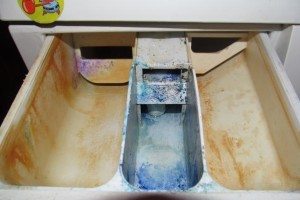 The powder does not dissolve well in hard water at low temperatures. As a result, soap scum with particles of powder and dirt settle on the parts of the washing machine. Similar deposits can be seen on the powder and conditioner tray, on the drain filter and rubber cuff. Softening the water will not only lead to better dissolution of the detergent, but to better removal of stains.
The powder does not dissolve well in hard water at low temperatures. As a result, soap scum with particles of powder and dirt settle on the parts of the washing machine. Similar deposits can be seen on the powder and conditioner tray, on the drain filter and rubber cuff. Softening the water will not only lead to better dissolution of the detergent, but to better removal of stains.
After washing in a damp environment, bacteria actively multiply and develop, which become a source of unpleasant odor. Without proper care of your washing machine, this smell can be absorbed into your laundry. Therefore, water softening and cleaning the machine are simply necessary, and can be used for effective cleaning citric acid.
Chemicals
One of the most popular water softeners is Kalgon. However, it owes such popularity not to its wonderful properties, but to advertising. In fact, by studying the composition of this product, you can be sure that similar water softening substances are included in any high-quality powder. Therefore, it is enough to use such a powder in the dose indicated on the package and not waste money on “advertising.”
Remember! The higher the water hardness, the higher the dose of powder per wash cycle.
A good water softener known to the older generations is soda ash. It must be added directly to the powder. Such a folk remedy will really effectively save washing machine parts from hard water. But it negatively affects clothing made from natural fabrics, so its use should be justified and careful.
You can soften the water with regular laundry soap. It is necessary to add soap when washing along with the powder. But It is highly not recommended to use this method for washing children's clothes. Because clothes washed with laundry soap will cause the child’s skin to dry out.
Filters for water purification
Experts consider softening hard water with chemicals to be not as effective as softening using filters for water purification. Similar filters not only soften water, but can also purify it from harmful impurities. There are several types of such filters.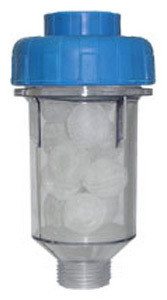
- Polyphosphate (salt) filter.
- Magnetic filter.
- Ion exchange devices.
- Reverse osmosis systems.
A salt filter is the most affordable way to soften water. In this filter, water softening occurs at the moment when it passes through polyphosphate crystals, which react with water salts, absorbing them. The output is soft technical water, suitable for washing and which does not harm the parts of the washing machine. This filter can be inserted into a water pipe by connecting an inlet hose to it, or an insert can be made into an inlet hose. The first option is preferable.
For your information! The polyphosphate filter must be changed at least once every six months, subject to daily washing.
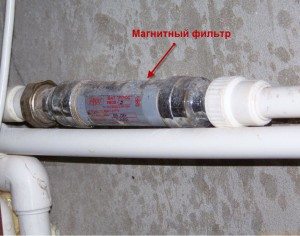 A magnetic filter uses a magnetic field to attract metal elements contained in hard water. As a result, most of the magnesium, calcium and other metal salts remain in the filter, and the water becomes suitable for washing. Unlike a polyphosphate filter, a magnetic filter is more reliable and durable. But the cost of a magnetic filter is many times higher. In addition, such a filter can be used not only to soften washing water, but also to purify drinking water.
A magnetic filter uses a magnetic field to attract metal elements contained in hard water. As a result, most of the magnesium, calcium and other metal salts remain in the filter, and the water becomes suitable for washing. Unlike a polyphosphate filter, a magnetic filter is more reliable and durable. But the cost of a magnetic filter is many times higher. In addition, such a filter can be used not only to soften washing water, but also to purify drinking water.
Ion exchange filters operate on the principle of double absorption, removing metal salts from the water passing through them. How does this happen? First, the water enters one compartment of the filter, where there is an adhesive substance that saturates the water with ions that react with heavy metals.
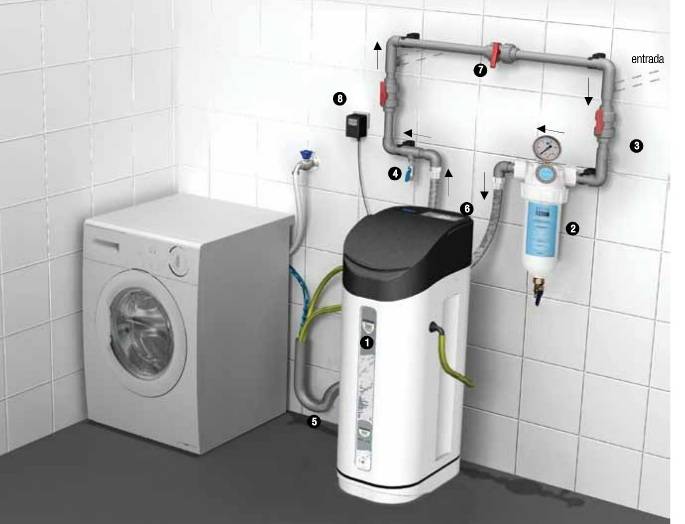 The ions of this substance, in fact, bind the elements of heavy metals, entering the second compartment along with water.The second compartment contains salt crystals that trap ions along with heavy metal salts. The result is perfectly soft water.
The ions of this substance, in fact, bind the elements of heavy metals, entering the second compartment along with water.The second compartment contains salt crystals that trap ions along with heavy metal salts. The result is perfectly soft water.
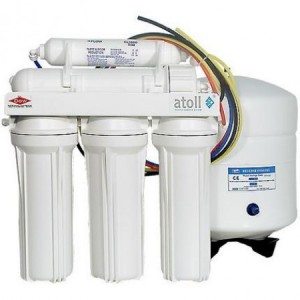 Osmosis filters. One of the most effective filters, since they purify water from heavy metal salts better than others. Such filters have at least two or three compartments separated by a membrane. Each compartment contains solutions of varying concentrations and densities. Water, passing under pressure through these substances, is purified from all dense elements present in it. The output is excellent soft water, which can only be used for technical purposes..
Osmosis filters. One of the most effective filters, since they purify water from heavy metal salts better than others. Such filters have at least two or three compartments separated by a membrane. Each compartment contains solutions of varying concentrations and densities. Water, passing under pressure through these substances, is purified from all dense elements present in it. The output is excellent soft water, which can only be used for technical purposes..
Note! Osmosis filters are not used to obtain water suitable for human consumption, since the purification provided by the filter is too deep. All beneficial substances are removed from water, and it can harm the human body.
So, there are different ways to soften hard water, each of them can be used to soften water for a washing machine. Choosing the most suitable method for you will all depend on your budget, desire to improve the quality of washing and protect the washing machine.
Interesting:
4 reader comments


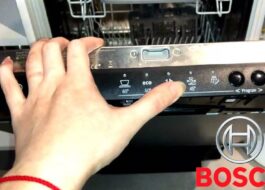

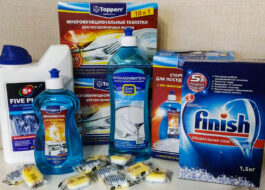
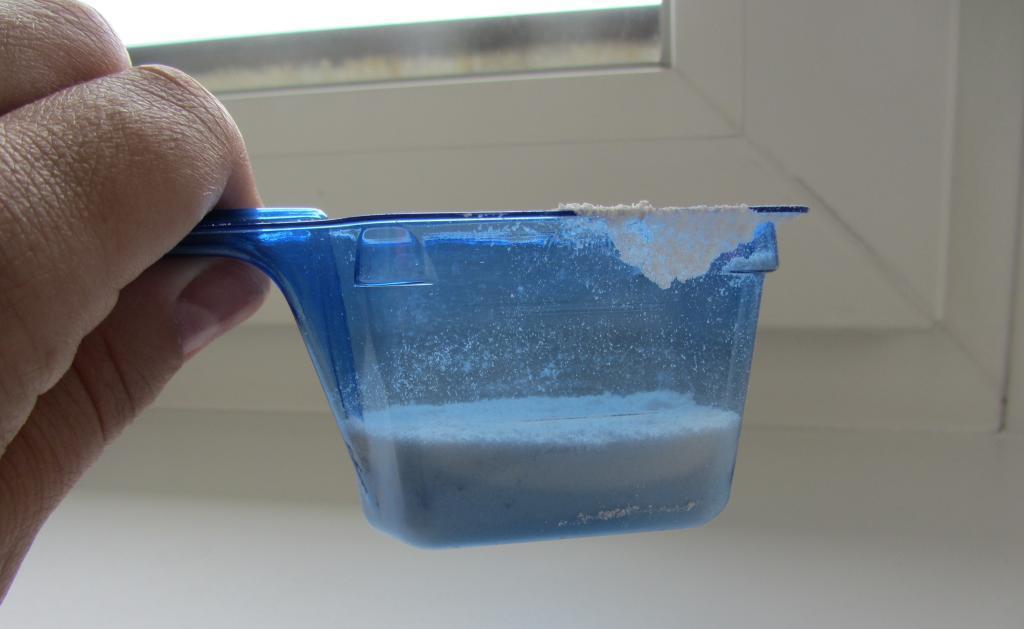
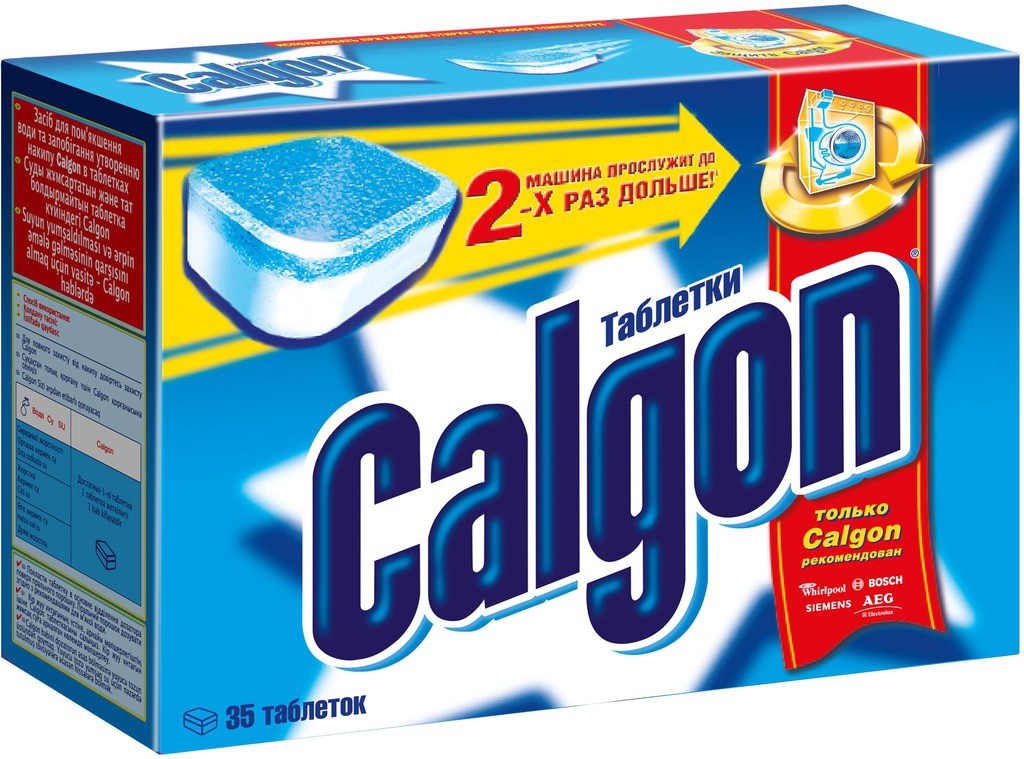


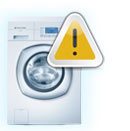
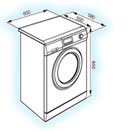


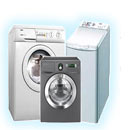
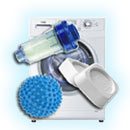



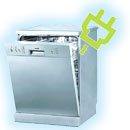

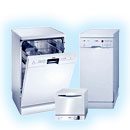
You are talking about the dangers of osmosis water and the effectiveness of the magnetic converter. Do you live through the looking glass?
Water passing through reverse osmosis becomes very close in salt content to distilled water. And as you know, it flushes salts from the body and leads to serious consequences. The reverse osmosis system must be equipped with a mineralizer to achieve the desired mineralization of the output water.
Water after osmosis filters is not suitable for drinking, as it washes out the salts necessary for life from the body. Naturally, this harm will occur and be noticeable after a certain period of use.
This is all pseudo-science fiction. The difference between the mineralization of ordinary water and distilled water is insignificant compared to the mineralization of fluids in the body. That is, the mineralization of fluids in the body is significantly higher than the mineralization of any water, ordinary or distilled. Therefore, the idea that the distillate “washes” something out of the body is not justified.